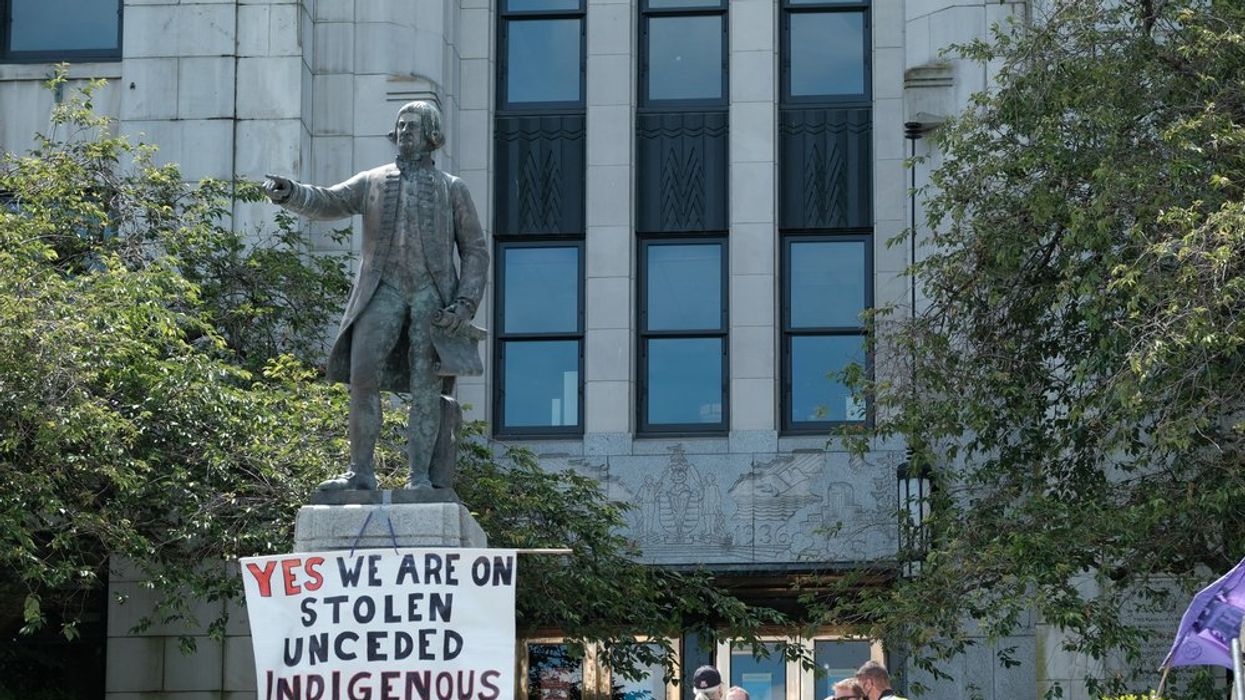Indigenous communities have mixed feelings about land acknowledgments.
A growing trend among sporting events, arts showcases, and professional conferences across North America has been to start proceedings with a formal acknowledgement that the land they are inhabiting was originally occupied by Indigenous groups. An ongoing debate among Native activists questions whether the gesture is well-meaning, or a waste of time.
To some, land acknowledgments are "performative" and do not lead to meaningful change or support for Indigenous communities. Kevin Gover, a citizen of the Pawnee Nation of Oklahoma and undersecretary of culture at the Smithsonian, told NPR that they often serve as a painful reminder of the atrocities committed against Native people.
"If it becomes routine, or worse yet, is strictly performative, then it has no meaning at all. It goes in one ear and out the other," he said, adding, "If I hear a land acknowledgment, part of what I'm hearing is, 'There used to be Indians here. But now they're gone. Isn't that a shame?' And I don't wish to be made to feel that way."
Others view the gesture as well-meaning, but still believe they need to inspire action rather than simply acknowledgements. To Cutcha Risling Baldy, a member of the Hoopa Valley Tribe and an associate professor of Native American Studies at California State Polytechnic University, they can be a foundation to build tangible activism on.
Baldy said that at her own conferences, she pairs the acknowledgment with QR codes that have donation links to Indigenous causes, while allowing a moment for attendees to scan and contribute. Furthermore, whether in the corporate world or in entertainment, companies can seek out and enfranchise Indigenous talent.
"The land acknowledgment gets you to that start," Baldy said. "Now it's time to think about what that actually means for you or your institution. What are the concrete actions you're gonna take? What are the ways you're gonna assist Indigenous Peoples in uplifting and upholding their sovereignty and self-determination?"
- Slur Against Indigenous Women Removed From Several US Location Names ›
- Indigenous Leader and Activist Revealed as White ›
- 'Green Colonialism': Indigenous Leaders Decry Western Climate Strategies | AdvocateChannel.com ›
- Calls to End Violence Against Native Women Grow on 'Missing or Murdered Indigenous Persons Awareness Day' | AdvocateChannel.com ›
- Wildfires Devastate Indigenous Communities throughout Canada ›
- Supreme Court Hands Massive Victory to Native American Tribes ›
- Professional Sports Teams Are Dropping Native Mascots, But What About High Schools? ›
- Biden Designates Mountain Sacred to Indigenous Tribes as National Monument ›


















































